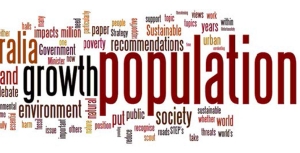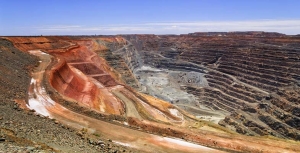Displaying items by tag: sustainability
Feeling adrift in a sea of false hope
A couple of months ago, I sat in on an Australian Conservation Foundation (ACF) event via Zoom for its donors and supporters that promoted its latest climate change campaign. As a long-serving councillor and former vice president of ACF, I was interested to hear about their campaign plans, which they explained are based on a poll of 15,000 people who indicated a desire for firm action on climate change. However, at the end of it, I felt isolated and alone. I felt I had moved on in my thinking, while ACF has not.
The presentations by senior ACF staff were earnest and uplifting and the comments posted in response were enthusiastic and supportive. But I felt myself estranged from the event. I found myself recalling how often, over my 30 years of enthusiastic involvement with ACF, I had felt uplifted and inspired by the same style of presentations by ACF’s key personnel. Now, not so and it felt a bit like having lost a faith.
So, what has changed for me as ACF barrels along in its customary manner? It comes down to a realisation that ACF, and environmentalism more generally, is stuck with talking about the symptoms of the environmental crisis, while ignoring the underlying causes. It is also locked into a largely fruitless campaign mode that is focused on targeting marginal seats in each Federal election. This has been its style since I joined its council in the 1980s and it remains a deeply entrenched, culturally embedded modus operandi.
The ACF people are intelligent, well-meant and deeply committed environmentalists, and for that they have my great respect. But they, and seemingly their supporters and donors who joined in this event, now appear to me to be tunnel-visioned and misguided in their fervour. First, and foremost, there is the assumption that climate change is the major existential threat that ACF and the wider environmental movement must address. It is their highest priority. And second, there is the additional assumption that this threat can be averted through a political campaign focussed on key marginal seats that will somehow bring about a radically different response. I hear myself thinking, ‘same old, same old’, looking back over forty years of ACF campaigning strategy. When will the penny drop that this is a fruitless strategy?
I could have submitted a comment to the event along the following lines:
When will ACF connect its climate change and biodiversity work to a deeper sustainability agenda that encompasses population growth, consumption, economic growth and technology – the underlying drivers of imminent collapse?
That would have been a real ‘party pooper’ contribution that I am sure would not have been welcomed by the ACF organisers on the night. It probably also would have been dismissed as inappropriate or irrelevant by most of the supporters and donors participating in the event.
The reality is that these deeper and more complex issues have been either ignored or dismissed by most ACF staff for much of its existence. This is despite the efforts of a number of its elected councillors and former Presidents over many years (ranging from Sir Garfield Barwick in the early 1970s to Emeritus Professor Ian Lowe more recently), to draw attention to them. The focus within ACF staff remains on an agenda dominated by the twin environmental pillars of climate change and biodiversity. But it would be unfair to level this criticism only at ACF. The environmental movement more generally, both here in Australia and in most other Western countries overseas, has largely displayed the same myopia in framing their campaigning and advocacy efforts.
As to the reasons for this behaviour, a fellow ex-ACF councillor, Jonathan Miller, offered me recently the following salient observations:
- The internal perception that it is easier to attract public support for issues such as climate change and biodiversity than for complex and less tangible issues such as population growth, consumption and economic growth.
- The additional perception that tackling the drivers of unsustainability is more difficult conceptually, much harder to win in the long-term and that it is more difficult to identify ‘wins’ to supporters and members.
- A shift in the profile of ACF (and other ENGO organisation) activists and their collective culture from those who deeply understand and love the bush (e.g. bushwalkers and those with natural science degrees) to those with broader social issue concerns (and whom, in turn, are particularly reluctant to tackle issues such as immigration-driven population growth in Australia).
Reinforcing the first of these points, the US founder of the Post Carbon Institute, Richard Heinberg, has offered the following observation about environmentalists more generally in a recent blog (The Only Long-Range Solution to Climate Change, Museletter #343 September 2021):
It’s understandable why most environmentalists frame global warming the way they do (by targeting the fossil fuel industry). It makes solutions seem easier to achieve. But if we’re just soothing ourselves while failing to actually stave off disaster, or even to understand our problems, what’s the point?
This succinctly echoes exactly where my own thoughts have arrived at after over 40 years of involvement with environmental law and environmentalism. I have come to believe that:
- climate change is essentially a symptom (admittedly a very powerful one) of an underlying ‘growth’ disease; and
- that the current political system, which is the hand maiden of capitalism and completely in its capture, is incapable of producing an effective response to climate change, much less the deeper challenge of avoiding ecological collapse and transitioning to sustainability.
On the latter score, the efforts by ACF and other ENGO’s to scramble for the crumbs falling from the table at each, successive federal election, seem both flawed and largely fruitless. Over the years, even though ACF does not directly support any political party, it has often engaged in targeting marginal seats where the ALP may have a chance of defeating the Coalition. The relationship with the Australian Greens has remained strained. And, after watching on ABC TV this week the first episode of the series, Big Deal, which laid bare the lack of any safeguards with respect to corporate political donations, it is clear where the most powerful influences on federal politics come from.
So, this is why I am left feeling alone and isolated. Where are the voices to raise the larger sustainability agenda? What is the point of environmentalism, however well-intentioned, if it proceeds in almost deliberate disregard of this larger agenda? How can this agenda be pursued when those most likely to support it do not, or are not willing to, recognise it? And what is the point of trying to engage with the current, corrupt political system in which a large proportion of Australian citizens have lost all confidence?
My response to these questions, perhaps surprisingly, remains hopeful. There are many voices emerging globally in support of a deeper sustainability agenda, including some luminaries in Australia. Environmentalism has been a meritorious movement over the past fifty years but it now must be seen as one that is limited in its vision and incapable of promoting a deeper sustainability agenda. This agenda must and will emerge from other sources and directions. And the goal must be to promote this agenda through radical social, economic and political reforms – these will be the pathways of the transition to a sustainable future that embodies ecological resilience and a human civilisation that is living within its means.
To develop these ideas further, I am engaged currently in writing a book entitled The Great Transition: From the Anthropocene to the Ecolocene which I hope to get published in about eighteen months from now.
This article is reproduced with permission. It was published in the Sustainable Population Australia newsletter, issue #145, November 2021. It was written by Rob Fowler, Adjunct Professor at the School of Law, University of Adelaide. He was a vice-president of the ACF from 2008 to 2015.
The Decoupling Delusion: Rethinking Growth and Sustainability
Our economy and society ultimately depend on natural resources: land, water, material (such as metals) and energy. But some scientists have recognised that there are hard limits to the amount of these resources we can use. It is our consumption of these resources that is behind environmental problems such as extinction, pollution and climate change.
Even supposedly 'green' technologies such as renewable energy require materials, land and solar exposure, and cannot grow indefinitely on this (or any) planet.
Most economic policy around the world is driven by the goal of maximising economic growth (or increase in gross domestic product – GDP). Economic growth usually means using more resources. So if we can’t keep using more and more resources, what does this mean for growth?
Most conventional economists and policymakers now endorse the idea that growth can be 'decoupled' from environmental impacts – that the economy can grow, without using more resources and exacerbating environmental problems.
Even the then US president, Barack Obama, in a recent piece in Science argued that the US economy could continue growing without increasing carbon emissions thanks to the rollout of renewable energy.
But there are many problems with this idea. In a recent conference of the Australia-New Zealand Society for Ecological Economics (ANZSEE), we looked at why decoupling may be a delusion.
The Decoupling Delusion
Given that there are hard limits to the amount of resources we can use, genuine decoupling would be the only thing that could allow GDP to grow indefinitely.
Drawing on evidence from the 600-page Economic Report to the President, Obama referred to trends during the course of his presidency showing that the economy grew by more than 10% despite a 9.5% fall in carbon dioxide emissions from the energy sector. In his words:
…this 'decoupling' of energy sector emissions and economic growth should put to rest the argument that combating climate change requires accepting lower growth or a lower standard of living.
Others have pointed out similar trends, including the International Energy Agency which last year – albeit on the basis of just two years of data – argued that global carbon emissions have decoupled from economic growth.
But we would argue that what people are observing (and labelling) as decoupling is only partly due to genuine efficiency gains. The rest is a combination of three illusory effects: substitution, financialisation and cost-shifting.
Substituting the Problem
Here’s an example of substitution of energy resources. In the past, the world evidently decoupled GDP growth from buildup of horse manure in city streets, by substituting other forms of transport for horses. We’ve also decoupled our economy from whale oil, by substituting it with fossil fuels. And we can substitute fossil fuels with renewable energy.
These changes result in 'partial' decoupling – that is, decoupling from specific environmental impacts (manure, whales, carbon emissions). But substituting carbon-intensive energy with cleaner, or even carbon-neutral, energy does not free our economies of their dependence on finite resources.
Let’s get something straight: Obama’s efforts to support clean energy are commendable. We can – and must – envisage a future powered by 100% renewable energy, which may help break the link between economic activity and climate change. This is especially important now that President Donald Trump threatens to undo even some of these partial successes.
But if you think we have limitless solar energy to fuel limitless clean, green growth, think again. For GDP to keep growing we would need ever-increasing numbers of wind turbines, solar farms, geothermal wells, bioenergy plantations and so on – all requiring ever-increasing amounts of material and land.
Nor is efficiency (getting more economic activity out of each unit of energy and materials) the answer to endless growth. As some of us pointed out in a recent paper, efficiency gains could prolong economic growth and may even look like decoupling (for a while), but we will inevitably reach limits.
Moving Money
The economy can also appear to grow without using more resources, through growth in financial activities such as currency trading, credit default swaps and mortgage-backed securities. Such activities don’t consume much in the way of resources, but make up an increasing fraction of GDP.
So if GDP is growing, but this growth is increasingly driven by a ballooning finance sector, that would give the appearance of decoupling.
Meanwhile most people aren’t actually getting any more bang for their buck, as most of the wealth remains in the hands of the few. It’s ephemeral growth at best: ready to burst at the next crisis.
Shifting the Cost onto Poorer Nations
The third way to create the illusion of decoupling is to move resource-intensive modes of production away from the point of consumption. For instance, many goods consumed in Western nations are made in developing nations.
Consuming those goods boosts GDP in the consuming country, but the environmental impact takes place elsewhere (often in a developing economy where it may not even be measured).
In their 2012 paper, Thomas Wiedmann and co-authors comprehensively analysed domestic and imported materials for 186 countries. They showed that rich nations have appeared to decouple their GDP from domestic raw material consumption, but as soon as imported materials are included they observe 'no improvements in resource productivity at all'. None at all.
From Treating Symptoms to Finding a Cure
One reason why decoupling GDP and its growth from environmental degradation may be harder than conventionally thought is that this development model (growth of GDP) associates value with systematic exploitation of natural systems and also society. As an example, felling and selling old-growth forests increases GDP far more than protecting or replanting them.
Defensive consumption – that is, buying goods and services (such as bottled water, security fences, or private insurance) to protect oneself against environmental degradation and social conflict – is also a crucial contributor to GDP.
Rather than fighting and exploiting the environment, we need to recognise alternative measures of progress. In reality, there is no conflict between human progress and environmental sustainability; well-being is directly and positively connected with a healthy environment.
Many other factors that are not captured by GDP affect well-being. These include the distribution of wealth and income, the health of the global and regional ecosystems (including the climate), the quality of trust and social interactions at multiple scales, the value of parenting, household work and volunteer work. We therefore need to measure human progress by indicators other than just GDP and its growth rate.
![]() The decoupling delusion simply props up GDP growth as an outdated measure of well-being. Instead, we need to recouple the goals of human progress and a healthy environment for a sustainable future.
The decoupling delusion simply props up GDP growth as an outdated measure of well-being. Instead, we need to recouple the goals of human progress and a healthy environment for a sustainable future.
James Ward, Lecturer in Water & Environmental Engineering, University of South Australia; Keri Chiveralls, Discipine Leader Permaculture Design and Sustainability, CQUniversity Australia; Lorenzo Fioramonti, Full Professor of Political Economy, University of Pretoria; Paul Sutton, Professor Department of Geography and the Environment, University of Denver, and Robert Costanza, Professor and Chair in Public Policy at Crawford School of Public Policy, Australian National University
This article was originally published on The Conversation. Read the original article.
We can Achieve Sustainability – but not without Limiting Growth
Mark Diesendorf, UNSW Australia
Can Australians be sustainable and enjoy endless economic growth? It’s not likely.



